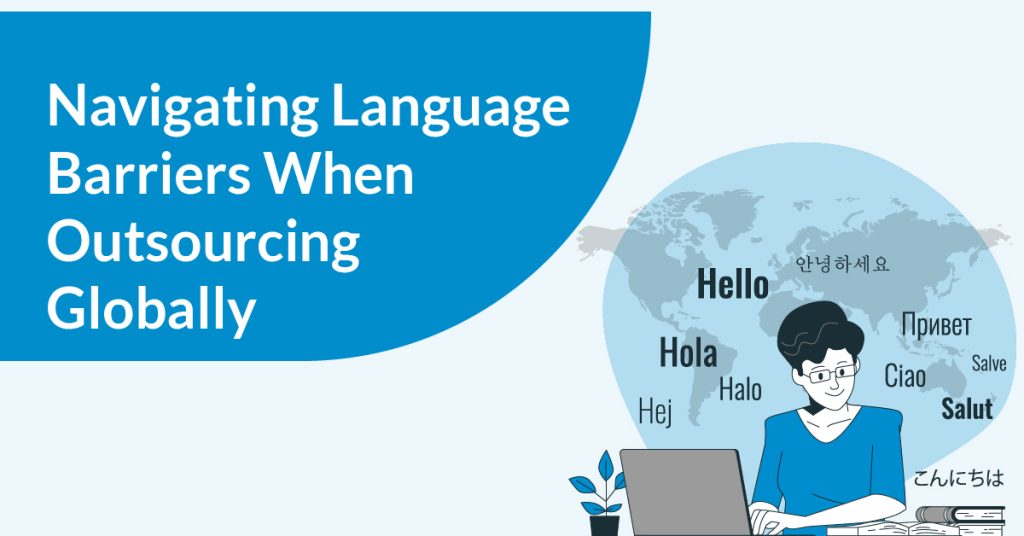
Language barriers in outsourcing agreements can significantly impact project success and profitability. These challenges stem from differing linguistic backgrounds, cultural norms, and communication styles. This article explores effective strategies for navigating these complexities and fostering seamless collaboration. By understanding potential pitfalls and implementing proactive solutions, you can ensure successful project execution and minimize risks. This article will outline critical steps to mitigate language barriers, from initial contract negotiation to ongoing project management, covering everything from clear communication protocols to crucial legal considerations. We’ll delve into essential strategies for effectively communicating with international partners and avoiding common pitfalls.
Understanding the Scope of the Problem
Defining Language Barriers in Outsourcing
Language barriers in outsourcing agreements refer to difficulties arising from differing linguistic and cultural backgrounds between contracting parties. These obstacles can manifest as misunderstandings in contract terms, misinterpretations of instructions, or ineffective communication during project execution. Often, these issues are compounded by cultural nuances that affect communication styles and expectations.
Proactive Strategies for Clear Communication
Establishing Clear Communication Protocols
Establish standardized communication protocols with your outsourcing partners right from the beginning. Clearly outline preferred communication channels (email, phone calls, video conferencing), response times, and preferred language(s). This clear communication framework is crucial in avoiding misunderstandings, ensuring prompt responses, and fostering a positive working relationship.
Selecting the Right Translation Services
Accurate translation of contract documents is paramount. Invest in professional translation services from reputable providers. Don’t rely on free online translators, as these often produce inaccurate or contextually inappropriate renderings. Ensure the translator has expertise in the specific legal and technical terminology related to the outsourcing agreement.
Navigating Contract Negotiations Effectively
Prioritize Clarity and Precision in Contracts
The contract itself should be meticulously crafted for clarity and precision, outlining each party’s responsibilities, deliverables, payment terms, and dispute resolution mechanisms. Employ clear, concise language that leaves no room for ambiguity, using precise technical terminology where necessary. Review the contract with a legal expert familiar with international agreements.
Utilizing Legal Consultants
When dealing with international partners, legal professionals familiar with international law and the relevant legal structures in each party’s jurisdiction are vital. These consultants can ensure the contract adheres to all legal requirements and protects your interests.
Cultural Sensitivity and Collaboration in Outsourcing
Building Trust and Rapport with Partners
Establishing trust and rapport with outsourcing partners is key. Actively seek to understand the cultural context behind communication styles and expectations. Engage in cross-cultural training sessions to enhance sensitivity and adaptability. Cultural differences in communication styles can include direct vs indirect communication, or the formality of addressing the other party.
Understanding Cross-Cultural Project Management
The ability to manage international projects requires specific skill sets. This includes understanding different time zones and work ethics, adapting project timelines and milestones, and managing expectations for project completion. Consider cultural differences in these areas when designing project plans.
Legal Considerations in Cross-Border Agreements
Legal Review and Vetting
Every outsourcing agreement should undergo rigorous legal review and vetting by legal experts specializing in international contracts. These experts can identify potential legal pitfalls, ensure compliance with relevant laws and regulations, and protect the interests of all parties involved.
Local Compliance and Regulations
Ensure that both parties understand and comply with all relevant local laws and regulations in their respective jurisdictions related to intellectual property, data protection, and other legal considerations.
How can I effectively resolve language and cultural misunderstandings arising during a project?
Open and honest communication channels are essential for resolving conflicts. Actively listen to different perspectives, validate concerns, and seek clarification whenever ambiguity arises. Use a third-party interpreter, mediator, or cultural advisor when needed. A prompt and sensitive approach can help defuse tense situations. Understanding the other party’s position and their viewpoint and expectations is vital.
What kind of training can enhance my team’s intercultural competence when outsourcing?
Cross-cultural training programs can empower teams to develop intercultural awareness, empathy, and understanding. This training can equip teams with practical strategies for handling different communication styles, conflict resolution techniques appropriate to various cultures, and effective strategies for collaboration with international partners.
Frequently Asked Questions
What are some common pitfalls to avoid when working with international outsourcing partners?
Common pitfalls include neglecting to address communication protocols, not reviewing legal documents thoroughly, and overlooking cultural differences. Misunderstandings can lead to delays, cost overruns, and project failures. To mitigate risk, proactively address cultural norms, establish clear communication protocols, and consult with experts.
In conclusion, effectively navigating language barriers in outsourcing agreements hinges on meticulous planning, clear communication, and a deep understanding of cultural nuances. By proactively addressing potential misunderstandings and fostering a collaborative environment, businesses can ensure successful outcomes and mitigate risks. For detailed guidance on specific language issues, consider consulting with legal experts specializing in international contracts. Your next step should be reviewing these guidelines carefully and implementing the strategies outlined in this article.